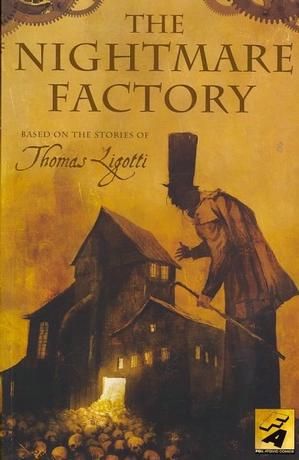I don’t know why every review I do starts with me bragging about how cheap something was but I got the first two discs of this show for less than two dollars! I wanted to watch it because I vaguely remembered it was associated with Pushing Daisies. It turns out that both shows were created by Bryan Fuller (Wonderfalls aired in 2004, Pushing Daisies from 2007 to 2009). I was also excited to find out that Lee Pace, the star of Pushing Daisies, is a supporting actor in Wonderfalls.
If you’re not familiar with Pushing Daisies, it’s only one of my favorite shows ever. Ned can bring dead people back to life, so he gets roped into solving murder mysteries. Ned can only bring people back to life for a minute so he and his friends never get enough information from the murder victim and have to travel through various hyper-quirky settings and meet people with stylized names. Meanwhile, Ned is very messed up emotionally because of his powers and frustrates everyone who tries to get close to him.
Unlike Pushing Daisies, Wonderfalls takes place in a more or less realistic world. The main character, Jaye, lives in a trailer park and works in a Niagara Falls gift shop even though she is college educated and comes from a wealthy family. Jaye doesn’t really want to put effort into anything, but toys at the gift shop start talking to her and forcing her to obey their orders, and when she obeys them, her actions help people. The toys that talk to Jaye give her very vague, confusing instructions so she doesn’t understand what she is supposed to do until the end of the episode. It feels like a mystery show even though it isn’t one, and the case of the week format ends up resembling that of Pushing Daisies.
I was disappointed by Wonderfalls. The first episode made me so happy and the next few episodes were about what I was expecting, but there were some pretty dumb ones and it almost never got as good as the first episode. I think what I liked so much at the beginning of the show was that even though the concept was quirky, the main characters were cynical and negative. There’s a similar conflict in Jaye’s appearance and mannerisms; she’s played by Caroline Dhavernas, who slightly resembles Zooey Deschanel and plays Jaye very energetically and with lots of crazy facial expressions. I guess the term Manic Pixie Dream Girl wasn’t around in 2004 but you know what I’m getting at; you would usually expect this character to be happy, impulsive, and full of wonder. Jaye adamantly isn’t. A grouchy/slacker female character is already unusual, but making that character so girlish and energetic even while she’s acting negative was just really cool. When writers and casting directors stick to tropes you don’t get characters that are as interesting as real people are.
Caroline Dhavernas is wonderful, by the way, and the show was worth watching just for her. All the other actors were almost as good.
Anyway, on to what I didn’t like. I think the show just didn’t live up to the promise of being quirky but not in a clichéd way; it ended up being clichéd more often than not. I really got tired of it during an episode where Jaye is being forced to help endangered birds mate and the birds were being used as a metaphor for, like, six human couples in the show. There were multiple scenes in the episode where a character was talking about the birds and suddenly came to a realization about their own relationship and then ran off to talk to their partner. Give me a break.
I also just got annoyed in general by the obsession with romantic pairings and I think the more the show focused on romance the more boring and formulaic it got. I’m not someone who doesn’t like romance or shipping, but the show kept making every pair of unattached characters fall in love with each other and a lot of the time the good deed Jaye accomplished was just getting a pair of random characters to start dating. There are other good things that can happen to people besides starting a relationship, and there are other ways for supporting characters to relate to each other.
But yeah maybe the show would have gotten better with time. They only had 13 episodes. It’s something to watch if only to see how great Caroline Dhavernas is and to enjoy the four or five episodes that are really good.
Side review: I usually read a lot of episode reviews while watching a TV show. Mostly it’s for emotional regulation and stuff (I read Wikipedia articles on shows I’m watching too) but it’s really nice when the episode reviews are actually good to read! I usually just do the AV Club but they never notice when things are racist, ableist, etc. so that’s a little annoying. A lot of the shows I watch are reviewed on a website that will remain nameless which tries to do social-justice-focused reviews of genre shows, but the writers try to be offended by everything and end up being offensive themselves. (I have too many examples to list, but they do things like saying a show is sexist because it has female characters who are internally affected by sexism.)
Anyway, while watching Wonderfalls I came across Mark Watches. I was so happy because when I watched a Wonderfalls episode where a fat guy is treated like a freak and a trans woman is mentioned just to be insulted, Mark and his commentariat all had a problem with that! Towards the end of the season there was another messed up episode and Mark Watches acknowledged that too. It was so nice to read reviews that I could relate to.




